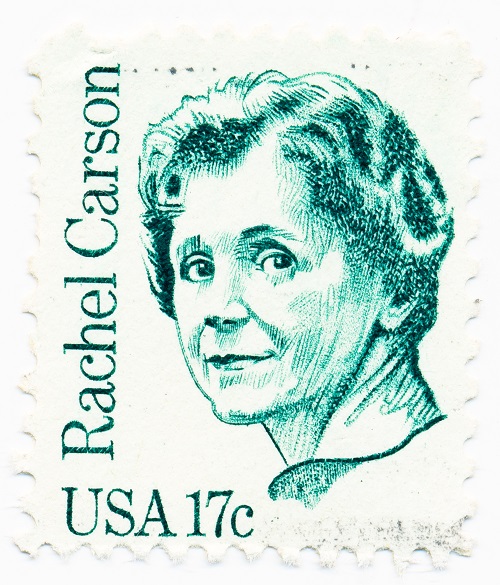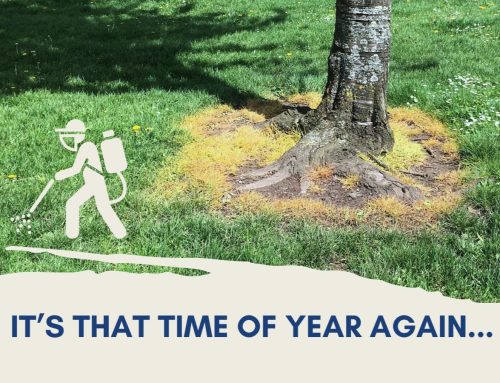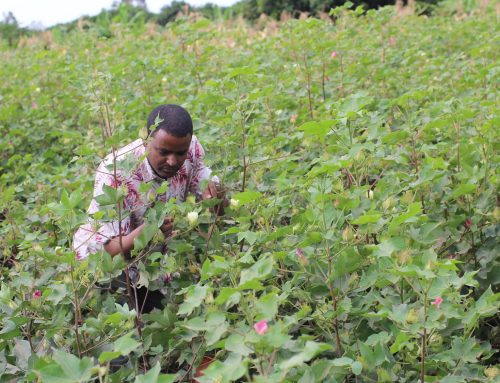by Keith Tyrell, Director, PAN UK
Today – 27th September – marks the 60th Anniversary of the publication of a truly remarkable book. Silent Spring has variously been credited with kick-starting the environmental movement and waking up humanity to the fragility of the natural systems on which all life depends. It challenged the pioneer mentality that viewed – and in some circles still views – nature solely as an asset to be exploited and dominated.
When I first encountered it 30-odd years ago, I viewed it from the perspective of a science undergraduate: it was a scientific examination of the impacts of chemicals on the environment. But returning to it two decades later, when I became Director of PAN UK, I realised that it is much deeper than that. It is about nothing less than our relationship with the natural world; it is about power; and, critically, it is about who makes decisions and in whose interests. And this is what makes it such a dangerous and radical book.

A stamp printed in USA circa 1981 showing biologist and author, Rachel Carson (1907-1964). Credit Solodov Aleksei / Shutterstock.com
Rachel Carson shone a light on the cosy relationship between government regulators and industry – and exposed how companies spread misinformation and doubt to keep their products on the market while regulators were all too happy to accept their claims unquestioningly. Make no mistake, there are two villains here. The companies who play fast and loose with science to keep their products on the market, and the governments who sit on their hands and let them get away with it.
The pesticide industry knows their products are dangerous, they know that ultimately their products will be banned and taken off the market. This has happened over and over and over again – there is a well-established life cycle for pesticides: pesticide is developed -> pesticide is approved (based on industry data) -> pesticide in use -> scientists start to uncover problems -> industry denies there is a problem -> regulators look the other way -> eventually the weight of scientific evidence becomes impossible to ignore and regulators finally and reluctantly intervene to restrict or ban the product. The real issue is how long it takes between a problem being noticed, and regulators taking action – sadly the answer is usually decades. Decades during which time ecosystems are ravaged, people are made sick and sadly too often, people are killed.
The industry’s objective in this model is NOT to prevent a ban – they know that is going to happen at some point – it is unavoidable. Their objective is simply to delay the inevitable, to buy time; time during which they can continue selling their product. And the economic case for this is crystal clear. The global market for individual pesticides runs into hundreds of millions of dollars, sometimes over a billion – for individual active ingredients! The research and development costs have long been written off, the factories that make them were built, in some cases, decades ago, just leaving operating costs. This is as close to pure profit as you are going to get in this business. Every year, every month, every day that they can keep their product on the market by sowing doubt, by undermining the credibility of critics, or by overinflating the benefits, equates to millions in profits.
This explains why industry reacted with such fury to Silent Spring, attacking Rachel Carson mercilessly and deploying tactics that have been refined and rolled out again and again by vested interests – from big tobacco to big oil – hell bent on making money regardless of the costs to society or the environment.
This is a depressing picture. The corporate capture of our regulatory systems undermines our society and trust in our political system. It is clearer and clearer that decisions are made, not for the benefit of society, or to protect our common environmental resources, but in the short-term financial interests of a small group.
But there is hope. If governments won’t act, then we will. Whether its climate campaigners taking direct action to block oil refineries, or local pesticide-free towns campaigns forcing their local authorities to stop using chemicals in their parks and open spaces, people are fighting back.
And the economic case for change is growing: Supermarkets are taking action to clean up their supply chains as consumers tell them they want less residues on their products. And in the US, we are seeing thousands of lawsuits being filed against these corporations as the truth about their products – and their role in keeping the harms hidden – is coming out wiping billions off their share prices.
Most importantly, the myth that we need to soak our environment in chemical toxins to feed the world is finally being exposed for the lie that it is. More and more farmers are discovering that it is possible to cut pesticide use, switch to agroecological approaches AND make a profit. Just as the Stone Age did not end for want of stones, the chemical age will come to an end as better, cleaner and greener alternatives emerge.
To mark the 60th anniversary of the publication of Rachel Carson’s game-changing book ‘Silent Spring’ we brought together Carey Gillam, Anna Lappé and Jennifer Jacquet, three incredible speakers who have spent years working to expose the corruption, corporate greenwashing and PR spin deployed by the agrochemical industry. Together, we examined the industry’s treatment of Rachel Carson 60 years ago and compare the tactics, manipulation and psychology used today.





